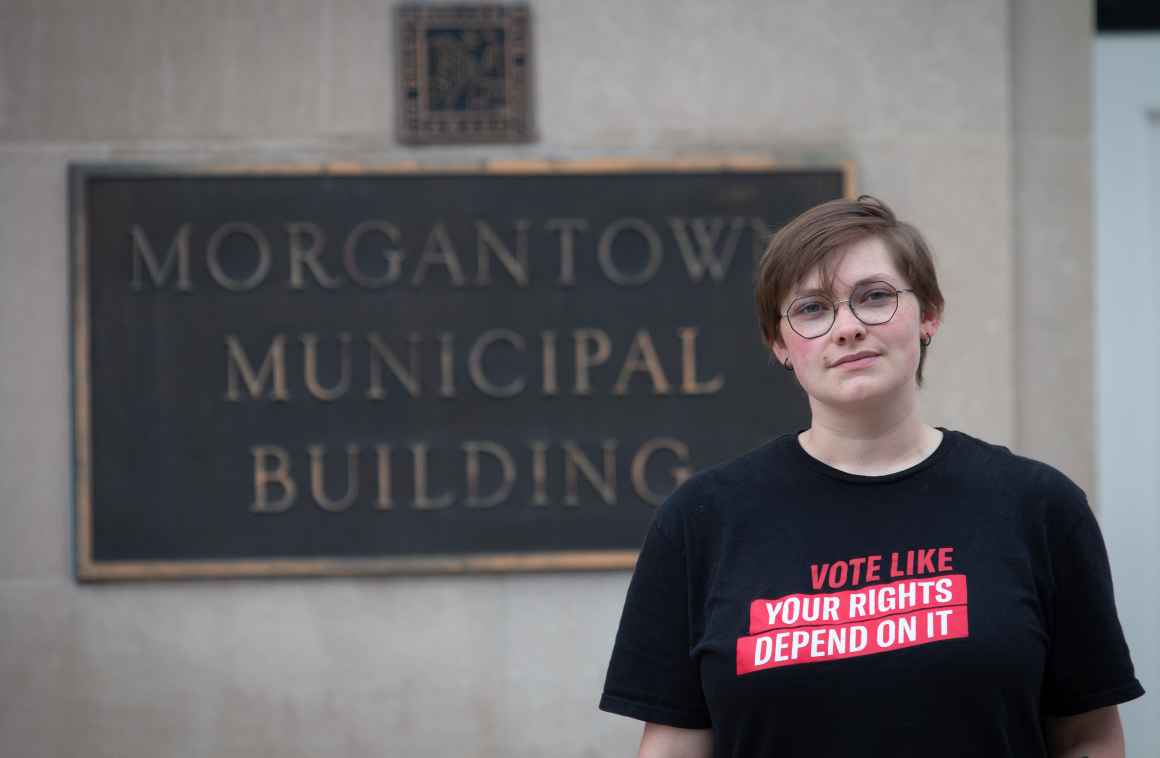AFTER DEFEAT OUR WORK CONTINUES: Helping people find safety after Morgantown narrowly upholds a so-called "camping ban"
With over 100 people experiencing homelessness in Morgantown and fewer that 40 beds for them, voter chose narrowly to criminalize sleeping outside. Our organizer Trans Justice Organizer Sam Green explains why this cruel policy makes homelessness worse—and how a coalition of groups in Morgantown is fighting back.

Housing advocates like ACLU-WV organizer Sam Green said they are staying motivated in the wake of a municipal election in which a slim majority of voters upheld the city's so-called camping ban.
The ban imposes fines and even jail time on people who sleep outside when they have nowhere else to go. Green pointed out that the issue is life-or-death for many unhoused people.
"It's deeply disturbing to me that some people want unhoused people to put in jail so they don't have to look at them," said Green, who got involved in efforts to recall the camping ban shortly after moving to Morgantown from Huntington.
Green said the ordinance won't do anything to improve homelessness. In fact, punishing already destitute people with fines, court fees and jail time will only deepen poverty, he said.
City officials and other proponents of the ban have said it is needed because it will encourage people to seek out resources rather than sleep on the streets. Green said city officials should be ashamed of themselves for such statements, pointing out that there are more than 100 homeless people in Morgantown and fewer than 40 beds.
"They're saying this will encourage people to seek resources when they know there aren't resources for them," said Green, who uses they/he pronouns.
Morgantown is one of a handful of West Virginia cities that allow voters to recall ordinances. When Morgantown first passed the camping ban last year, Green and others sprang into action.
Along with other members of Morgantown Coalition for Housing Action (MoCHA), Green knocked on doors to ask for signatures and helped organize community events to raise awareness of the issue.
"We needed about 1,300 signatures and we turned in 2,000," they said.
But there was a twist.
When city election officials counted the signatures, they threw out more than a thousand, claiming that signatures didn't match or that some of the signers lived outside of city limits. Green said they personally knew several people whose signatures were incorrectly discarded. That left just 956 signatures. Organizers then had just under two weeks to get the number back up to 1,300.
"We had ten days. It was all hands on deck," Green said.
All is not lost.
Green pointed out that voters also elected a more progressive city council, and said he is hopeful that newly-electeds will prioritize funding more beds and other much-needed resources.
He also praised MocHA and the community it has fostered. This groundswell of support, he said, will continue to do all it can to serve people's needs.
"We'll continue to support mutual aid through crowd-funding as well to try to keep people safe," he said.
West Virginia has seen several camping bans passed into law after the U.S. Supreme Court upheld a similar law in Oregon last year, but ACLU-WV Legal Director Aubrey Sparks said that ruling was narrow and does not give government officials a blank check.
"We are disappointed, but this vote doesn't change people\'s basic constitutional rights," she said. We will watch enforcement of this ordinance closely. -- BILLY WOLFE